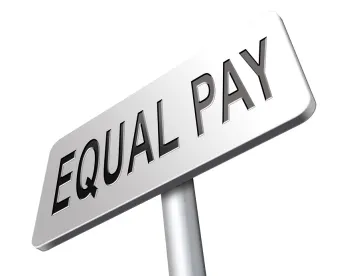On Monday, the Ninth Circuit issued a significant opinion, Rizo v. Yovino, 2018 WL 1702982 (9th Cir. April 9, 2018), authored by the late “liberal lion” Judge Stephen Reinhardt, holding that an employer’s consideration of prior salary information cannot serve as a justification for sex-based wage differentials under the federal Equal Pay Act.
The lawsuit was brought by Aileen Rizo, a California math consultant who alleged that the Fresno County Superintendent of Schools violated the Equal Pay Act by improperly setting the salary of employees based on adding 5% to new hires’ prior salary. In its 52-page decision, the Court focused on the catchall exception to wage differentials under the Equal Pay Act—“a differential based on any other factor other than sex.” Through interpreting the statutory text and legislative history of the Act, the Court concluded that prior salary does not fall under the catchall exception by emphasizing that the exception only applies to legitimate job-related factors (e.g., experience, educational background, ability, prior job performance) and does not apply to factors “that are simply good for business.”
The Court explained that prior salary “is not a legitimate measure of work experience, ability, performance, or any other job-related quality” and that it had an attenuated relationship with “legitimate factors other than sex such as training, education, ability, or experience.” The opinion rejects a 2017 decision of a three-judge panel of the Ninth Circuit in the same case and overrules Kouba v. Allstate Ins. Co., 691 F.2d 873 (9th Cir. 1982), in which the Court had found that past salary information is a factor employers could consider in setting a salary structure. In their concurrence, Judges Callahan and Tallman stated that the majority “unnecessarily ignores the realities of business and, in doing so, may hinder rather than promote equal pay for equal work.”
The Ninth Circuit issued the Rizo decision less than two weeks after the California Superior Court in San Francisco refused to dismiss a putative class action, Kelly Ellis et al. v. Google, LLC, Case No. CGC-17-561299 (Mar. 27, 2018), in which former female employees of Google claim that the company does not compensate women as highly as men in violation of the California Equal Pay Act. The Complaint alleges that Google has a policy of connecting women’s pay to their past salary and places and keeps women in lower paying job positions.
These rulings come at a time when states across the nation are enacting new laws to bolster pay equity protections for employees consistent with California’s Equal Pay Act. That law already prohibits employers from relying on information regarding past pay to justify sex-based pay difference. Cal. Lab. Code § 1197.5(b)(3) (“Prior salary shall not, by itself, justify any disparity in compensation”). California also recently enacted a statewide salary history inquiry law prohibiting employers from asking applicants about salary history information. Cal. Lab. Code § 432.3.
In light of the increasing focus on pay equity as it relates to prior salary history, employers should take immediate steps to address pay equity issues in the workplace, including conducting internal audits (preferably with the assistance of counsel so that the attorney-client privilege may be invoked) and analyzing pay practices and policies with a focus on specific categories of positions and job levels.




 />i
/>i

